- Home
- Michelle Tea
Black Wave
Black Wave Read online
Published in 2016 by the Feminist Press
at the City University of New York
The Graduate Center
365 Fifth Avenue, Suite 5406
New York, NY 10016
feministpress.org
First Feminist Press edition 2016
Copyright © 2016 by Michelle Tea
All rights reserved.
This book was made possible thanks to a grant from New York State Council on the Arts with the support of Governor Andrew Cuomo and the New York State Legislature.
No part of this book may be reproduced, used, or stored in any information retrieval system or transmitted in any form or by any means, electronic, mechanical, photocopying, recording, or otherwise, without prior written permission from the Feminist Press at the City University of New York, except in the case of brief quotations embodied in critical articles and reviews.
First printing September 2016
Cover design and text design by Suki Boynton
Cover and interior photos by Gretchen Sayers
Names: Tea, Michelle, author.
Title: Black wave / Michelle Tea.
Description: First Feminist Press edition. | New York : Feminist Press at CUNY, 2016.
Identifiers: LCCN 2016011700 (print) | LCCN 2016018502 (ebook) | ISBN 9781558619463 (e-book)
Subjects: LCSH: End of the world--Fiction. | Storytelling--Fiction. | Lesbians--Fiction. | BISAC: FICTION / Literary. | FICTION / Lesbian. | FICTION / Contemporary Women. | FICTION / Coming of Age.
Classification: LCC PS3570.E15 B58 2016 (print) | LCC PS3570.E15 (ebook) | DDC 813/.54--dc23
LC record available at https://lccn.loc.gov/2016011700
For Beth Pickens
Contents
TITLE PAGE
COPYRIGHT
DEDICATION
San Francisco
Los Angeles
Acknowledgments
ABOUT THE AUTHOR
ALSO BY FEMINIST PRESS
ABOUT FEMINIST PRESS
1
Michelle wasn’t sure when everyone started hanging out at the Albion. She had managed to pass the corner dive for years without going inside, simply noting the dank, flat-beer stink wafting from its open doors, catching the glow of the neon sign hung above the bar—SERVICE FOR THE SICK—in hot, red loops. It seemed that all the other dives had been purchased and repurposed, renovated and sold to a different clientele. The purple-lit bar where middle-aged, working-class bulldaggers nursed beers at the counter was, overnight, converted into a heterosexual martini bar where men who smoked actual cigars drank chocolate martinis and harassed the women who passed by on Valencia. It was 1999.
Aside from the neon sign glowing its sinister pronouncement, the Albion’s other notable fixture was Fernando, a man who wore a mullet and a leather vest and carried a brown paper bag, the sort a mother will pack her child’s lunch in. It contained cocaine heavily cut with baby laxative. Michelle and her friends would pool their resources and walk into the women’s restroom with Fernando, who would tear a page from the stack of Cosmopolitan and Glamour in the corner, origami it into a little envelope, and dip it into his sack of drugs. The rumor on Fernando was that he used to work for the government, the FBI or the CIA, and was so hooked up with the most corrupt corners of the system that he was immune from being busted. Everyone felt very safe buying drugs from Fernando in the women’s restroom at the Albion.
Oh, Valencia, Michelle mourned. Michelle was a poet, a writer, the author of a small book published by a small press that revealed family secrets, exposed her love life, and glamorized her recreational drug intake. Her love life and recreational drug intake had been performed up and down Valencia Street, the main drag of San Francisco’s Mission neighborhood, once Irish, then Mexican, later invaded by a tribe bound not by ethnicity but by other things—desire, art, sex, poverty, politics. For six years Michelle had lived adjacent to this particular strip of gentrification and resistance, of commerce and SRO hotels and boutiques and taquerias. And, of late, it had changed. The Chameleon, a bar hung with velvet clown paintings, where Michelle had read her first poem to an audience, was no more. The poem had been awful, a melancholy love poem delivered in poetry voice, that stilted, up-toned lilt. She had compared her lover to a desert and her heart to a piece of cactus fruit busted up on the dusty ground. She had feared the poem was bad but rationalized that bad art had its fans and that her shabby offering would find its people. And at the close of the open mic a meek young lesbian had brought her shaved head over to Michelle and shyly thanked her.
Michelle had a special place in her heart for the Chameleon, its stage painted sloppily with giant orange flames. Its poetry event was famously unruly—all the poets were alcoholics, slamming each other in the head with chairs like professional wrestlers. That bar was Michelle’s first home in San Francisco, when she moved there from New England. She had enjoyed playing the part of the quick-witted and enraged baby dyke, she loved to clamber up to the microphone and holler at the drunks to Shut The Fuck Up! before launching into a spoken-word diatribe against pornography and child molestation. She did it well enough that the drunks stayed quiet, gave her a grudging respect afterward. When she bound her rants into xeroxed manifestos they bought them, and Michelle traded their damp dollars at the bar for pints of beer. The Chameleon was its own ecosystem, but the owner had fallen into a crack habit and so the business went under. Some French people bought it and renamed it Amnesia, as if Michelle would forget. It was so perfect it was cruel, the new name. Amnesia. Michelle marveled at it.
It seemed to be sweeping the Mission, amnesia. Every time Michelle blinked a familiar place had shimmered into an alien establishment. The Casanova had retained its name but gotten a new crowd, people Michelle had never before seen in her neighborhood. They looked like they had jobs, and money. Restaurants she could not afford to eat in were luring people from other enclaves, people once too frightened to visit the Mission, where people sold drugs and shot at one another with guns. These new arrivals wore clothing that had never been worn by anyone but them, clothing they would tire of and donate to the Salvation Army, where Michelle would buy it and wear it on this very street a year from now. There was a chain here, a cycle, Michelle could sense its churn. Anyway, the Mexican families who had been there forever had watched Michelle and her scrappy ilk invade the streets years earlier, artists and queers, damaged white people bringing dumpy coffee shops and these poetry bars. Why did she think her world wasn’t supposed to change?
Michelle pondered the question of her changing neighborhood in the darkness of the Albion, the last dive standing. A place where a cockroach once lost its grip on the ceiling and tumbled onto her notebook. A place where her checkbook was once stolen by a crackhead. Her black army bag had been slung over the back of her chair and the man was sitting behind her. Michelle had seen him and noted the scrawniness of his physique, the bug of his eyes, his cheekbones like broken glass threatening to slice through the skin of his face. Michelle played it cool. The Albion was the kind of place where one fraternized with crackheads. Go get a fucking appletini at Blondie’s if you can’t handle it, yuppie. Michelle could handle it. She gave the crackhead a nod of camaraderie—weren’t they both high on the same substance, after all? Michelle, a white girl, took her cocaine heavily cut with the aforementioned baby laxative in an inhalable line. This gentleman, African American, bought his in the smokable rock configuration. Michelle knew there were currently people in academia writing papers about this. If the man had hung around any longer she might have even bought him a beer, depending on the bonhomie quality of that evening’s cocaine, but the gentleman dipped his trembling hand into Michelle’s bag, snatched her checkbook, and took off before the bartender kicked him out. The Albion d
id not officially condone crack smoking. They would eighty-six you for firing your pipe in the bathroom, yet the bar had a resident cocaine salesman and people brazenly cut lines atop the glass of the pinball machine. Michelle did not condone this hypocrisy. Total bullshit.
Michelle had smoked crack cocaine only once and did not find it enjoyable.
She and her friends had been playing pool at the lesbian bar when a man with a tear tattooed beneath his eye wandered in. The man had been in prison for many years, last time he’d been free the lesbian bar had been a Mexican bar. He was confused but thirsty, and so he purchased a beer and played a game of pool with Ziggy and Stitch. Ziggy’s hair was orange as a traffic cone. She was an ex-junkie medicating her addiction with uppers and booze. She was a poet who enjoyed yelling her verse and a cook employed by the finer restaurants in San Francisco. When Ziggy got drunk her spatial cognition tanked and her lips got very wet. She would corner you in an intense conversation, keeping you pinned with her sharp green eyes, licking her lips. Michelle was into it, she loved intense conversations and getting drunk made the whole world feel severe and profound, teeming with wonder and pain. She enjoyed the company of others who could feel it—drunks and poets, mainly.
Stitch, Michelle’s housemate, was also swapping more dangerous addictions for controlled alcoholism and the occasional cocaine indulgence. A few years back, she had transitioned from femme to butch and became everyone’s project. Established butches made donations of well-worn Jack Daniel’s T-shirts. Older femmes groomed her to their liking, gifting her with outsized belt buckles and other late-nineties accessories.
The two butches played pool with the ex-con while Michelle, who hated pool, hung around sipping drinks and watching the sun go down outside the bar’s open door. The hue of the sky was the visual equivalent of the alcohol settling into her body—dusky blue shot with gold and darkening to navy. San Francisco, like many cities, had become a vampire town. The killer sun charged the pollution in the skies into a smoggy cocktail. By day, people darted from shelter to shelter like roaches stunned by sudden light, visors like riot gear shading their faces, SARS masks strung across their jaws, parasols arcing above their melanoma-spotted heads. Places of commerce opened later and later. Business visionaries inverted the workday. It was predicted that by 2010, nine-to-five would be fully replaced by five-to-nine. If everything lasted that long.
Michelle had arrived at the bar at sunset, still sleepy. The first rush of booze perked her up, the sugar infusing her with a pleasant mania before it released her into that darker, confused place where her mind became a sea that consciousness bobbed about on, rolling with the waves of passion and opinion.
Just then, a marauding band of already-drunk yuppies crashed into the bar and made a flamboyant fuss over the ex-convict’s inky teardrop tattoo—Oh my god were you in JAIL did you KILL someone? As they swarmed him, Michelle and her friends were there to tell them to back the fuck off. The three of them were just drunk enough to enjoy a righteous fight, all were perpetually pissed about the changes the neighborhood was experiencing. All three knew someone who was now making thousands of dollars playing foosball and drinking energy drinks in the break room of an Internet start-up, and all three knew someone who’d been evicted from their home to make room for a foosball-playing young millionaire. Ziggy, on the verge of eviction for months now, had sabotaged the sale of her home once already by running around the apartment half-naked with a dildo strapped to her hips when a speculative realtor came calling.
What, the gang demanded of these offensive yuppies, were they even doing in the queer bar? Were they even queer? The invaders wobbled over to the corner of the bar to regroup, and Ziggy, who spoke some shitty Spanish, asked the man with the tattoo if he could find them cocaine. He could. The trio stormed out of the bar. Michelle wondered briefly if it was a good idea for the man, only just released from prison, to be sourcing illegal drugs for a passel of queer white girls, but decided to go with the flow. It would be an experience, and Michelle was a writer.
As they cruised the Mission in Ziggy’s beat-up molester van—the windows blackened, the doors warped as if gangs of kidnapped children had tried to batter their way out—Michelle felt proud that she and her friends knew the proper and respectful way to hang out with a recent ex-convict with a teardrop tattooed on his face. The world was bigger than it had been ten minutes ago, a rabbit hole into which they could all tumble. The man was very good-looking, with a prison-yard physique, short hair, and a sort of humility. He hopped from the van on Capp Street and returned with his fist clenched around the drugs. He opened his palm.
No! Ziggy exclaimed. Coca, coca! She shook her orangey head at the substance he’d procured. This is crack. She laughed, a rueful snort. Ziggy wore a pair of goggles with lenses the same shade as her hair. She wore them strapped to her skull, just above her forehead, keeping her Kurt Cobain bob out of her face. It was like a butch headband. Ziggy’s teeth were so bad from her poverty and drug use they tumbled about in her mouth like a handful of chipped marbles. I love crack, she said sadly, and piloted the van to an empty lot in Hayes Valley, stopping briefly to purchase a special pipe off a lady crackhead on Mission. Michelle wondered for a second if there were diseases to be caught from the burned glass pipe of a career crackhead, but she had learned that fearful questions in such situations could lead to racism, to classism, to all sorts of unevolved and judgmental states of mind, and so one did not think too hard. One just accepted the chipped pipe with its charred bowl and one inhaled. And then one slid open the van door and puked onto the pavement, because crack is repulsive.
Outside the van, vines threaded themselves lushly through a chain-link fence and the parked cars sat soft, reflecting soft streetlights. It was 1999 and the earth’s decline was accelerating. Most native plants and trees were gone, leaving hardier invasive species. This one had leaves like wide, flat elephant ears, their green sheened with gloss. It had no business growing in San Francisco, but Michelle, hungry for green, appreciated it. Kids growing up now wouldn’t know any better, but Michelle had been raised among oak trees and maples, linden trees that perfumed summer nights. The town that had borne her was a shitty one, but back then even a shitty town had trees. Now even nice neighborhoods barely had a garden.
Michelle was too drunk to feel a single inhalation of crack. She leaned back in the van and watched Ziggy and Stitch fight over it—like, who was holding the pipe too long, who was owed their next hit, who had dropped a crumble of rock into the van’s carpeted shag and needed to fucking find it, now. Michelle had indulged in drugs with her friends many times and never had she seen such fiendish behavior. It was disturbing to see them acting like such dopeheads. Then Ziggy and Stitch began fooling around with the ex-con. They took turns making out with him. He was cute enough, and Michelle knew how it was to be all fucked up with no one to make out with. Ziggy and Stitch weren’t going to make out with each other—that would be gross. Michelle would be gross as well, maybe grosser. They were family. With his face stuck to Ziggy’s, the man’s hand slithered over and landed on Michelle’s leg, only to be smacked off by Stitch. Not her, Stitch snapped.
He gave Michelle a sincere apology, the inky tear suspended beneath his hangdog eyeball, and returned to Ziggy. He had only wanted Michelle to feel included, but Michelle wasn’t butch enough to mess around with men. It would be simply heterosexual, and slutty. For Ziggy and Stitch it was something else, proof of their toughness. They could tumble around with this guy and emerge from the van as queer as ever, more queer, even, and the man might now in fact be a bit queer from his time spent cracked out in Ziggy’s butch bosom. Ziggy smacked the man lightly in his face and they both smiled. Radical was the order of the day and it was not radical for Michelle, with her normal girly gender, to fool around with a guy. It would be a normal, boring, sell-out thing to do. But Ziggy and Stitch, both of them looking, acting, dressing, and smelling like boys, could do anything they wanted and be radical. They brought their ra
dicalness into every situation and radicalized it with their presence.
Michelle caught a ghost of her reflection in the dark van window—blue hair, a bit fried from the effort. Bangs fringed her forehead, uneven, hacked off at home with a dull pair of scissors. Her kelly-green pleather coat was one of Stitch’s femme castoffs. She wore an orange slip as a dress, the tucks in the chest stitched for a woman more voluptuous than she. Its lacy neckline ballooned around her scrawny sternum. Alcohol bloat plumped her cheeks. A leopard scarf was knotted around her throat. She wore motorcycle boots on her feet, so heavy, every step demonstrating gravity. It was the end of the century.
Michelle stretched out on the van floor, leaning against the bench seat in the back, teetering between boredom and discomfort. As a writer, Michelle was happy to have smoked the crack. Having been unable to get it together and apply to college, she knew her literary education would happen on the streets. The streets were like the ocean—full of trash and beauty, and no one had the right to say which was which, not at this late date. Michelle would sit on the curb and illuminate what the tide pulled in.
Ziggy was an expert drunk driver. She took corners fast and loose, coming up on two wheels and returning to four with the grace of a pilot touching down on the tarmac. Soon Ziggy would tire of this escapade and drive her and Stitch home. Until that happened, Michelle knew her friends would make sure their new acquaintance didn’t slide his hand up the underwear she was trying to pass off as a dress. She could relax and space out, attempt to locate the effects of the drug in her body, elusive beneath the familiar roll of liquor. She yawned and checked “smoke crack” off her to-do list. The van rumbled to her door as the rumor of morning began to glimmer in the sky. Michelle felt relief. Nights she fell asleep before the sun came up were good nights. It meant that her life was under control.

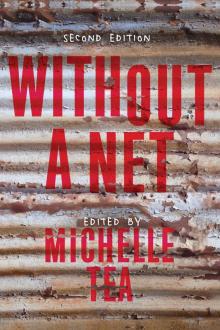 Without a Net
Without a Net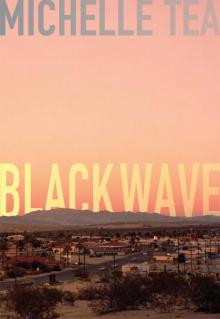 Black Wave
Black Wave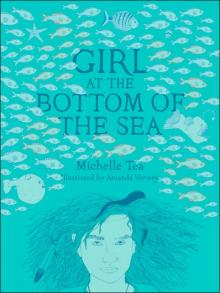 Girl at the Bottom of the Sea
Girl at the Bottom of the Sea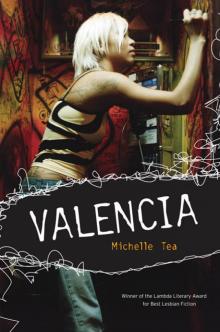 Valencia
Valencia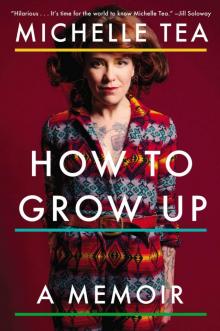 How to Grow Up
How to Grow Up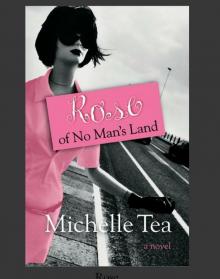 Rose of No Man's Land
Rose of No Man's Land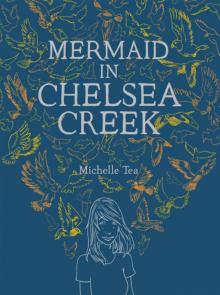 Mermaid in Chelsea Creek
Mermaid in Chelsea Creek